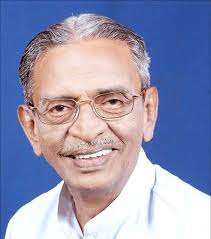The Clerical Class, Hierarchy? Institutionalised Blasphemy
Rev. Valson Thampu

The Statesman
4 April, 2019
Note: For the last five years Pope Francis has been trying his very best to reform the Church with the motto “a poor church for the poor!”. It was precisely for this he took the name Francis of “Assisi”.
That poor man of Assisi, known as “Il poverillo” was said to be a visionary for simple life, even as a youth. He is reported to have quarrelled with his rich cloth-merchant father and ran away from home naked, after throwing in the face of his father even the clothes he wore, saying he did not want anything of his family wealth.
No reform to happen!
Even after Rome Sex-summit no visible reform is happening. So this scribe wrote no reform will ever happen because the Church we live in is the one of Constantine from 312 onwards addicted to wealth, sex, power and royal, comfortable, hierarchical life style, not that of Jesus community of equality, fraternity and foot-washing ministry.
Now our learned Columnist Valson Thampu, in the article below has come to the same conclusion. It is worth listening to at least one of his piercing statements: “If anyone thinks that the church can be reformed and its evils eradicated, or priests and bishops made less corrupt and more humane, they are chasing a wild goose. It is utterly futile to unseat a bishop or a hundred bishops. One bishop will be followed by another, worse than his predecessor.”
Not ready to be child-like
Valson traces the root cause to Bishops’ resistance to be ‘Childlike’ to the teachings of Jesus in the gospel to become childlike to enter the kingdom of God. We traced the cause to the parable of the Pharisee and publican praying in the temple and the publican going out justified in God’s sight, and the Pharisee condemned due to his pride, arrogance and better-than-thou attitude to rule over all and not to serve.
Among the thousands of divided churches, this superiority complex is exhibited, only by the Catholic Church when it presents itself as the “first and foremost” God has entrusted with the whole truth and the mission to preach the good news to the whole world. It is not yet ready that all churches and religions are true and equal before God that only the one who humbles himself like Jesus will be exalted.
Structural Sin
Sin is not only personal but also structural as Latin American bishops have found out. In the Church the Himalayan dead weight is the Hierarchical set-up of division, competition and rat race to climb higher in the ladder of power, wealth and domination. When the Catholic Church Reform International (CCRIL) came to India years ago I told them, there is no use trying to reform it, until the monstrous structure of hierarchical set up, is destroyed lock, stock and barrel and dumped in the Arabian sea.
This inequality has no place among the followers of Jesus born in a cattle shed and lived to serve the poor and needy in every sphere of life and not to be served. That is why Francis himself said in one of his Synod speeches that the pyramidal hierarchical church should be turned upside down and made to stand on its head. He went one step further by putting himself one feet below the laity (People of God) to deserve the title “Servant of the servants”.
Spread Cattle class Contagion
He lives that ideal in his two bed room Casa Santa Martta. Only the rest of the bishops don’t imitate him. They live the Constantanian lifestyle. So I fail to see how any reform is possible in our or our children’s life time. So let the ideals of equality, fraternity, love, care and service of the Cattle-shed-born infect the whole world like a contagion. For what?
So that there may be only one class on the face of the earth, the CATTLE CLASS OF JESUS, competing among themselves to take the last place to do the foot-washing ministry, to serve and not to be served! “Servire Domino regnare est!” To serve the Lord (among the downtrodden) alone is to regin. james kottoor, editor CCV.
Please read below Valson Thampu on Institutionalised Blasphemy
If anyone thinks that the church can be reformed and its evils eradicated, or priests and bishops made less corrupt and more humane, they are chasing a wild goose. It is utterly futile to unseat a bishop or a hundred bishops. One bishop will be followed by another, worse than his predecessor.
Jesus’s words are neither unclear nor confusing. There is no excuse for not understanding any of his teachings. Yet, we fail woefully to understand his teachings. Why?Consider this teaching that unless we ‘turn and become like children’, we shall never enter the kingdom of heaven’ (Mtt.18:3).
In two thousand years we have only receded from grasping what it means to ‘turn’ and ‘become like children’. Often, we have difficulty in understanding a spiritual idea not because it is difficult in itself, but because its implications are unacceptable to us. The word on which we stumble in this teaching of Jesus is ‘turn’. It is a simple word. Yet it is, in its implications, quite formidable. It is so because the hardest thing for human beings is to have to change oneself. We are happy to change others for our sake. But changing oneself is an unwelcome prospect for us. To ‘turn’ is to change; and that puts us off.
This reluctance, which often works below the level of our consciousness, prevents us from going deeper into the meaning of this teaching. So, we never ask, “What does it mean to become like children?” It is likely that a vast majority of my readers have never considered this question because I myself did not address this question until I became aware of the psychology underlying the tendency to dodge it.
Jesus puts the focus on the need to change. He did so, realizing the extreme difficulty in the sphere of religion in bringing about any change whatsoever. Effecting change in any sphere is difficult. It is most difficult in religion. The reason is simple. Religion functions through habit formation. It is a process that commences from birth. It goes on for years. As a result, religious patterns and habits are deeply ingrained in us. They are not like our clothes; they are like our skin. Changing any of the religious practices and habits is like de-skinning oneself.
It is in this light that we must see the central paradox of the biblical faith. It is focused on transformation, or total and radical change. The change envisaged is so radical that its outcome is denoted as ‘a new creation’. It is because of this that Bonhoeffer wrote in The Cost of Discipleship, “When Christ calls us, he calls us to come and die”. To me, the funniest thing in religious life is that people want to be transformed, but without having to undergo any change.
But, everyone knows, a change is necessary. There can be no improvement, much less breakthrough, without a radical change. But we don’t want to change. So, what is the way out of this stalemate?In the religious equation there are two parties: God and me. The need for change arises because the relationship between the two is not right. The scope of the change required is determined by the need to set this all-important relationship right. This goal can be attained if one of the two parties changes. We don’t want to change. So, what is the option left? Well, God must change.
That is indeed the purpose that drives our religiosity in its entirety. The singular purpose of established religion ~ including Christianity ~ is to change God to suit man’s convenience. Because of this there is a yawning gulf between spirituality and religion; and it is most striking in the case of biblical spirituality vis-à-vis Christianity. Biblical spirituality is about our transformation.
Christianity is about maintaining the status quo without aches and pains. This is sought to be achieved by manipulating God to fit our convenience. If in the biblical faith, the emphasis is on seeking the will of God, in popular Christianity the obsession is with imposing our will on God.
Not convinced? You will be. All you have to do is to consider the way you pray. Recall all the prayers you have ever heard. Especially ardent and hysterical prayers. The purpose of each one of them is clear and unmistakable. It is keenness to change God’s will and to make it subservient to our own.
How has this perversion come about? This has happened, clearly, in the wake of the emergence of the priestly class. The only business of priests is to ‘mediate between’ God and human beings. With a slight twist this becomes ‘to serve as middlemen’ between God and believers. Middlemen, to be able to justify their existence at all, need to pretend that they have special powers, and the right, to influence God. Else, why would you go to priests or go through them to God? To influence God is to change God’s will. The need to ‘influence’ God arises only in case God has to be forced to act contrary to his natural disposition.
So, it is a logical necessity that the more believers depend on priests the less open they become to living according to godly values. Priestly authority is erected on a dangerous lie: that priests have the power, and the authority, to twist the will of God in favour of this or that person. This superstition, to which we have got used to, is quintessential blasphemy.
That is why Jesus introduces the image of the ‘child’ and insists that we must turn and become like children. What is the most natural and characteristic aspect of children? Isn’t it that they need no ‘middlemen’ between them and their parents? Have you ever come across a home anywhere in the world, in which children relate to their parents only through middlemen? I haven’t. On the other hand, if my children try to relate to me through middlemen, I’d feel greatly hurt and insulted.
We stay blissfully unaware of this blasphemous insult to God that we are routinely guilty of. The reason our eyes and hearts are shut against seeing it for what it is, is that it is encased in an elaborate and mesmerizing institutional network. That network is not the church, but the church hierarchy. If you ask, “What is church?” you will get the answer, “All of you together; the church is you.” But try and act on it; you will be snubbed or cast out. For all practical purposes, church is only the hierarchy.
This hypocrisy, most people don’t realize, stands rooted deep in the blasphemy that is institutionalized as the priestly class ~ the blasphemy of pretending to be able to manipulate the will of God one’s whims and fancies dictate. Do you want to know if you have turned and become like children, as Jesus said you should? Well, here is what you can do. Ask yourself a few questions.
Do you feel a need to depend on priests and bishops? Do you feel an irrational fear about emerging from their tutelage? Do you fear that they have the power to shut the door of heaven and open the gate of hell for you? If you do, you have neither ‘turned’ nor ‘become like children’.
The beautiful thing about the world of children is its spontaneity. Spontaneity denotes a harmony between what is and what appears to be. That is, there is no margin for hypocrisy in spontaneity. You can’t be spontaneously hypocritical. You can be habitually hypocritical, but never spontaneously hypocritical. The moment you become hypocritical your capacity for spontaneity dies forthwith.
This explains why our adult religious life is stiff and mechanical. The formal liturgy which never engages the truth of our life ~ is like a cast in which we place ourselves for a limited period of time each Sunday. There is no life in it. Old people like me struggle to keep awake, and not fall asleep, during worship. Young people dream dreams. As for children, they talk or play among themselves and get pinched and boxed by the elders in their proximity.
The heartbreak is that this state of affairs doesn’t bother anyone. The intriguing feature is that, all this notwithstanding, there are Christians who feel surprised that ‘the fear of God’ has departed from priests and bishops. They astonish me no end.
Have you noticed this one thing? Jesus did not address his teachings to the priests of his times. He condemned their hypocrisy; but never addressed them. His teaching ministry was addressed exclusively to the people. Why? Jesus was realistic. He knew that not even God could change priests. Ordinary people are open to change. Priests are in the business of re-formatting God. Who can change them?
It is impossible to improve on the wisdom of Jesus. If anyone thinks that the church can be reformed and its evils eradicated, or priests and bishops made less corrupt and more humane, they are chasing a wild goose. It is utterly futile to unseat a bishop or a hundred bishops. One bishop will be followed by another, worse than his predecessor. A High Priest will be followed only by another High Priest. There is no history of a High Priest having been followed by a prophet or a saint.
If there is any hope, it is only in working with the people. They are free to ‘turn and become like children’. But between them and the kingdom of heaven stands an insurmountable hindrance: priests who insist that the people ~ the children of God should relate to God only through them. They’ll issue you gate passes to heaven for a price, irrespective of your spiritual merit. And so long as you want to enter such a heaven, their tyranny over you will never end.
(The writer, a former Principal of St. Stephen‘s College, is a theologian committed to social justice and God-centred harmony of all faiths)
Cover image: Jesus puts the focus on the need to change. (Representational Image: iStock)


















Religion makes idiots of the people as people are not allowed to think for themselves. They are required to swallow whole whatever had been decided many centuries ago. If anyone were to ask "why this" and "why that", religions will begin to collapse. In the West the people have abandoned church and the main reason for it, I believe, is people over there asked themselves questions such as "why confess to these nuts", "why Mass"? "Are these guys gone nuts to tell us that unless we keep eating Jesus body day in and day out, we will forget Jesus and the values we are born with as humans?" "Are we stupid to believe that these priests have miraculous powers to turn bread into body? "Is eating real flesh legally permitted"? They realized that it is a waste going to church to attend the above services. In India, the clergydom has so far eminently succeeded in keeping church attendance full because they are lucky that when it comes to faith the brains of the faithful goes into frozen mode. Not for long though. They had better take note..
Another eye-popping treatise by Rev. Valson Thampu. Only he can make such a clinical dissection of the institution called Church.